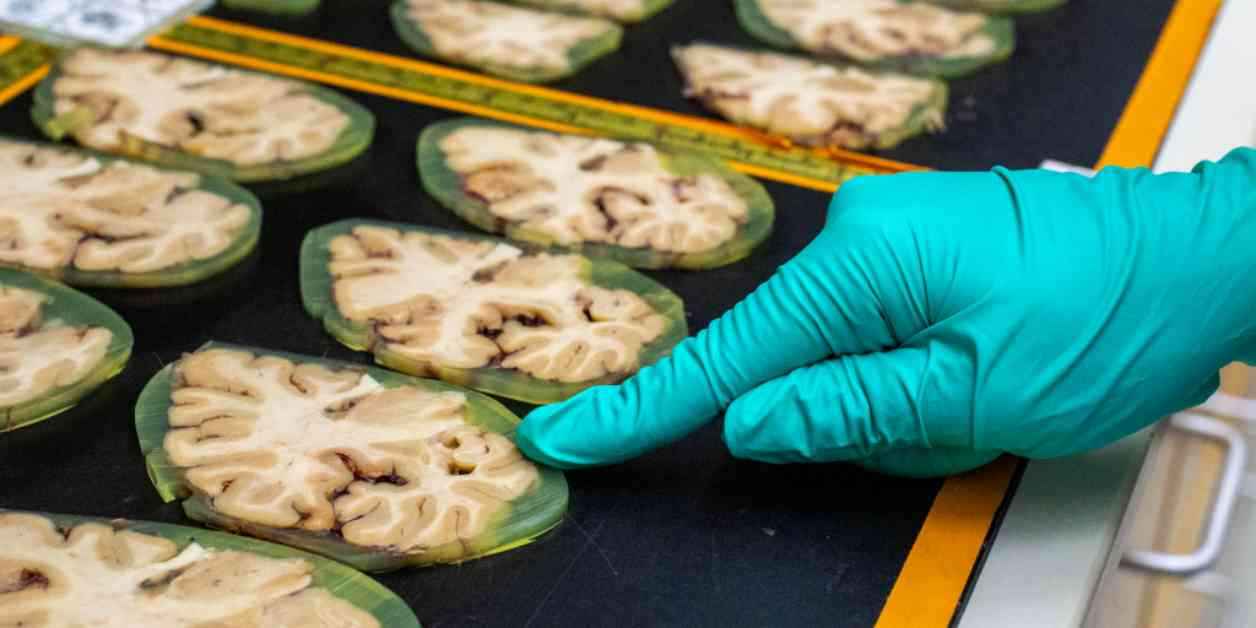Amidst the challenge of uncertain funding for critical Alzheimer’s research projects, the fate of numerous grants and medical breakthroughs hangs in the balance. Andrea Gilbert, a spirited 79-year-old with Alzheimer’s disease, embodies the urgency and personal stakes involved in this crisis. Her decision to donate her brain for research in 2023 reflects a poignant commitment to advancing scientific understanding of the disease that has impacted her daily life. However, the looming threat of funding cuts due to changes in federal biomedical research support adds a layer of complexity to her generous gesture.
Impending Crisis: The High-Stakes of Alzheimer’s Research
The University of Washington’s Alzheimer’s Disease Research Center (ADRC), a pivotal resource in the fight against Alzheimer’s, faces a funding shortfall that could jeopardize years of groundbreaking work. Established in 1985, the ADRC has been at the forefront of unraveling the intricate biology of Alzheimer’s and identifying key genes linked to the disease. The program’s invaluable brain bank, which preserves over 4,000 brains annually, relies heavily on grant funding set to expire in April.
Dr. Thomas Grabowski, a leading neurologist and the director of the ADRC, grapples with the uncertainty surrounding patient care and the future of research at Harborview Medical Center. As federal funding delays persist, the center’s critical work in understanding Alzheimer’s and developing potential treatments faces an unprecedented threat. Dr. Dirk Keene, the director of neuropathology at UW Medicine, emphasizes the imperative to honor the commitment of brain donors despite mounting financial challenges.
Universities in Crisis: The Ripple Effects of Funding Cuts
The ripple effects of funding cuts extend beyond Harborview Medical Center to universities across the nation, including the University of Washington. Recent actions by the Trump administration have resulted in grant terminations and delays, impacting vital research areas like Alzheimer’s, diversity, and LGBTQ issues. The uncertainty surrounding federal funding has sparked widespread concern among researchers, students, and faculty, prompting fears of a brain drain in the U.S.
Shelly Sakiyama-Elbert, vice dean of research at UW Medicine, underscores the far-reaching consequences of reduced funding on talent retention and scientific innovation. The abrupt halt in grant approvals and the cancellation of critical projects have forced the university to implement drastic measures such as furloughs, layoffs, and reduced graduate admissions. Renowned scientists like Dr. David Baker, a Nobel laureate in protein design, express deep concern over the impact of funding cuts on their research teams and future scientific endeavors.
As the battle for funding intensifies in courtrooms and academic circles, the fate of lifesaving research hangs in the balance. The ongoing legal challenges against NIH and the Department of Health and Human Services underscore the urgency of restoring funding to ensure the continuity of groundbreaking research programs. The collaborative network of Alzheimer’s research centers funded by the National Institute on Aging faces a critical juncture, with 14 centers seeking grant renewals amidst a climate of uncertainty and instability.
In the heart of this tumultuous landscape, Andrea Gilbert’s unwavering spirit and resilience serve as a poignant reminder of the human impact of the funding crisis. Her journey with Alzheimer’s disease, marked by hope, humor, and fortitude, sheds light on the profound importance of ongoing research efforts to combat this debilitating condition. As she undergoes treatments and faces the uncertainties of the future, Andrea’s story underscores the critical need for sustained support and funding for Alzheimer’s research initiatives.
The stakes are high, the challenges immense, and the urgency palpable. The fate of Alzheimer’s research hangs in the balance, with the lives of countless individuals, like Andrea Gilbert, depending on the outcome. As scientists, physicians, and advocates rally to secure the necessary funding for critical research projects, the collective hope remains steadfast: to unlock the mysteries of Alzheimer’s disease, advance medical breakthroughs, and ultimately pave the way for a future free from the grip of this devastating condition.














